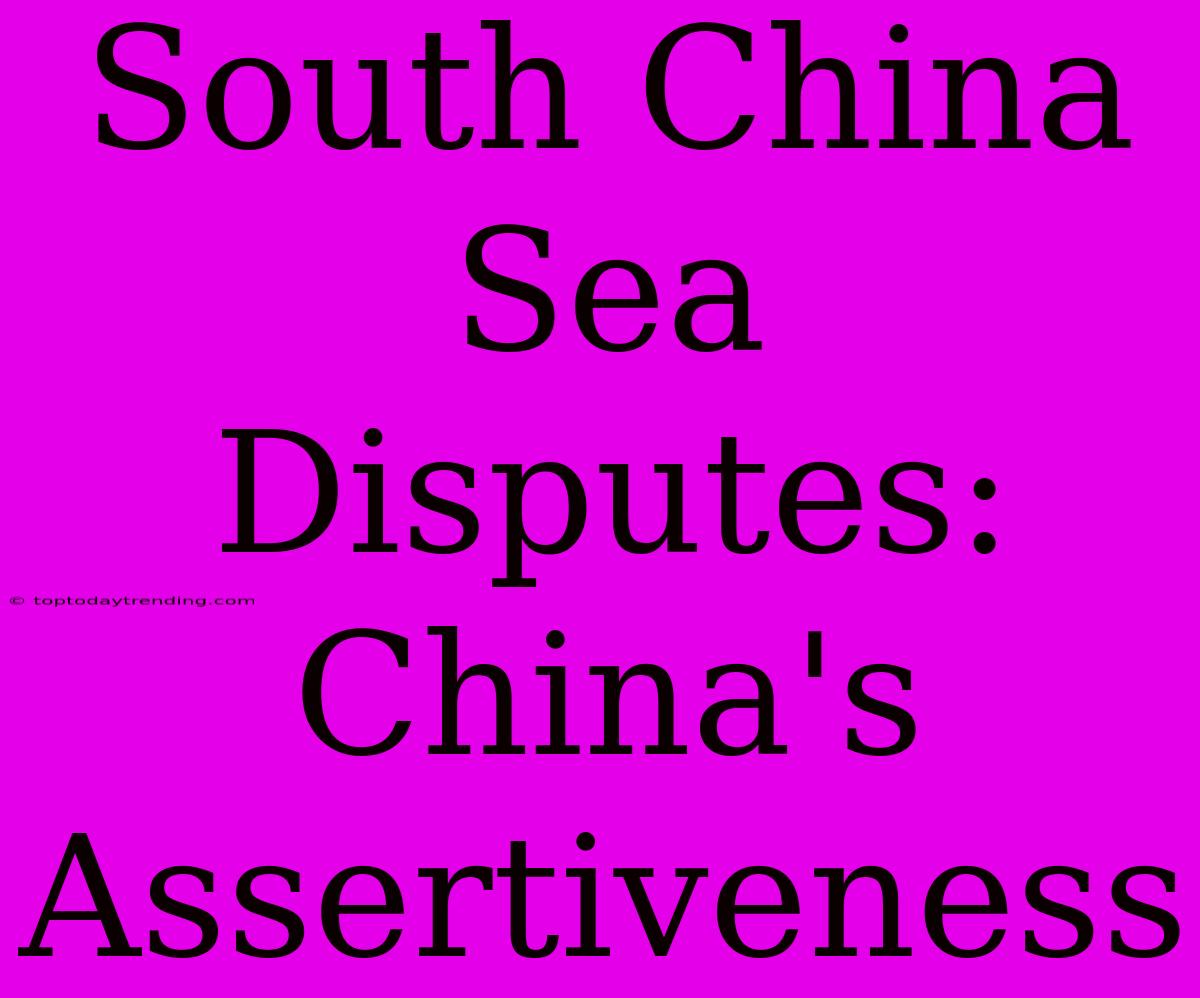South China Sea Disputes: China's Assertiveness
The South China Sea (SCS) has become a focal point of geopolitical tension in recent decades, largely due to China's increasingly assertive claims over the region. This vast body of water, rich in resources and strategically important, has sparked a complex web of disputes involving China, several Southeast Asian nations, and the United States. Understanding the historical context, China's claims, and the global implications of this ongoing conflict is crucial.
Historical Context:
The South China Sea has been a maritime crossroads for centuries, with various nations having historical claims based on proximity, exploration, and fishing activities. While China asserts a historical claim based on the "nine-dash line" on its maps, which encompasses nearly the entire SCS, other nations like Vietnam, the Philippines, Malaysia, Brunei, and Taiwan have their own overlapping claims based on international law.
China's Assertiveness:
Since the early 2000s, China has actively pursued its claims in the South China Sea with increasing assertiveness. Key developments include:
- Artificial Island Building: China has reclaimed vast areas of land in the Spratly Islands, creating artificial islands with military facilities, including airbases, radar stations, and missile systems. This has raised concerns about China's military intentions and potential for militarization of the region.
- Maritime Patrols: China's navy and coast guard have intensified patrols and incursions into areas claimed by other countries, leading to several confrontations and diplomatic tensions.
- Economic Measures: China has utilized economic pressure through its Belt and Road Initiative and trade agreements to influence regional nations and dissuade them from opposing its claims.
- Diplomatic Assertions: China has consistently asserted its historical claims and criticized international law, while seeking to undermine the legitimacy of other nations' claims.
Global Implications:
The South China Sea disputes have far-reaching consequences:
- Regional Security: Increased military presence, potential for conflict, and disruptions to maritime trade pose significant risks to regional security and stability.
- Economic Disruptions: Disputed waters are rich in oil, gas, and fisheries, making the conflict economically significant.
- Global Order: China's assertiveness challenges existing international law and order, setting a precedent for future territorial disputes and impacting the global balance of power.
- US Involvement: The US, a key player in the Asia-Pacific region, has become increasingly involved in the disputes, conducting freedom of navigation operations and expressing concerns about China's actions.
Towards a Solution:
Resolving the South China Sea disputes requires a multifaceted approach:
- Diplomacy and Dialogue: Continued diplomatic efforts, including multilateral forums like ASEAN, are crucial for fostering dialogue and finding a peaceful solution.
- International Law: Adherence to international law, including the United Nations Convention on the Law of the Sea (UNCLOS), is essential for ensuring fair and equitable claims.
- Cooperation and Shared Interests: Recognizing shared interests in maritime security, economic development, and environmental protection can pave the way for cooperation.
- Transparency and Trust Building: Building trust through transparency, communication, and confidence-building measures is vital for de-escalating tensions and finding common ground.
The South China Sea disputes remain a complex and sensitive issue with no easy solutions. However, finding peaceful resolutions through dialogue, adherence to international law, and cooperative efforts is crucial for maintaining regional stability and ensuring freedom of navigation in this vital waterway.

